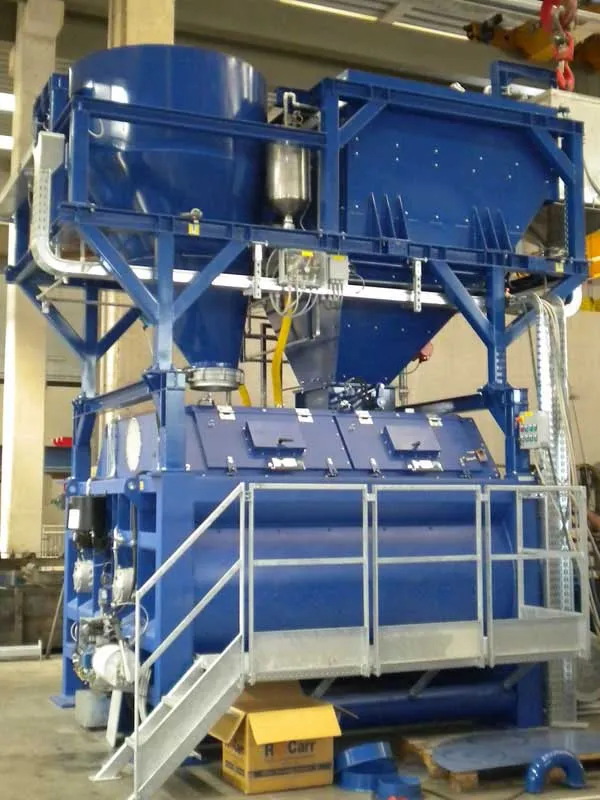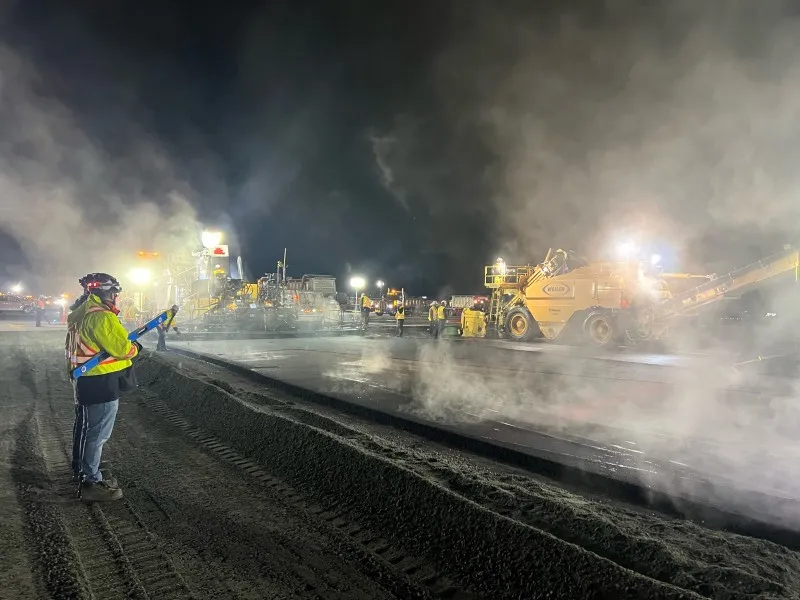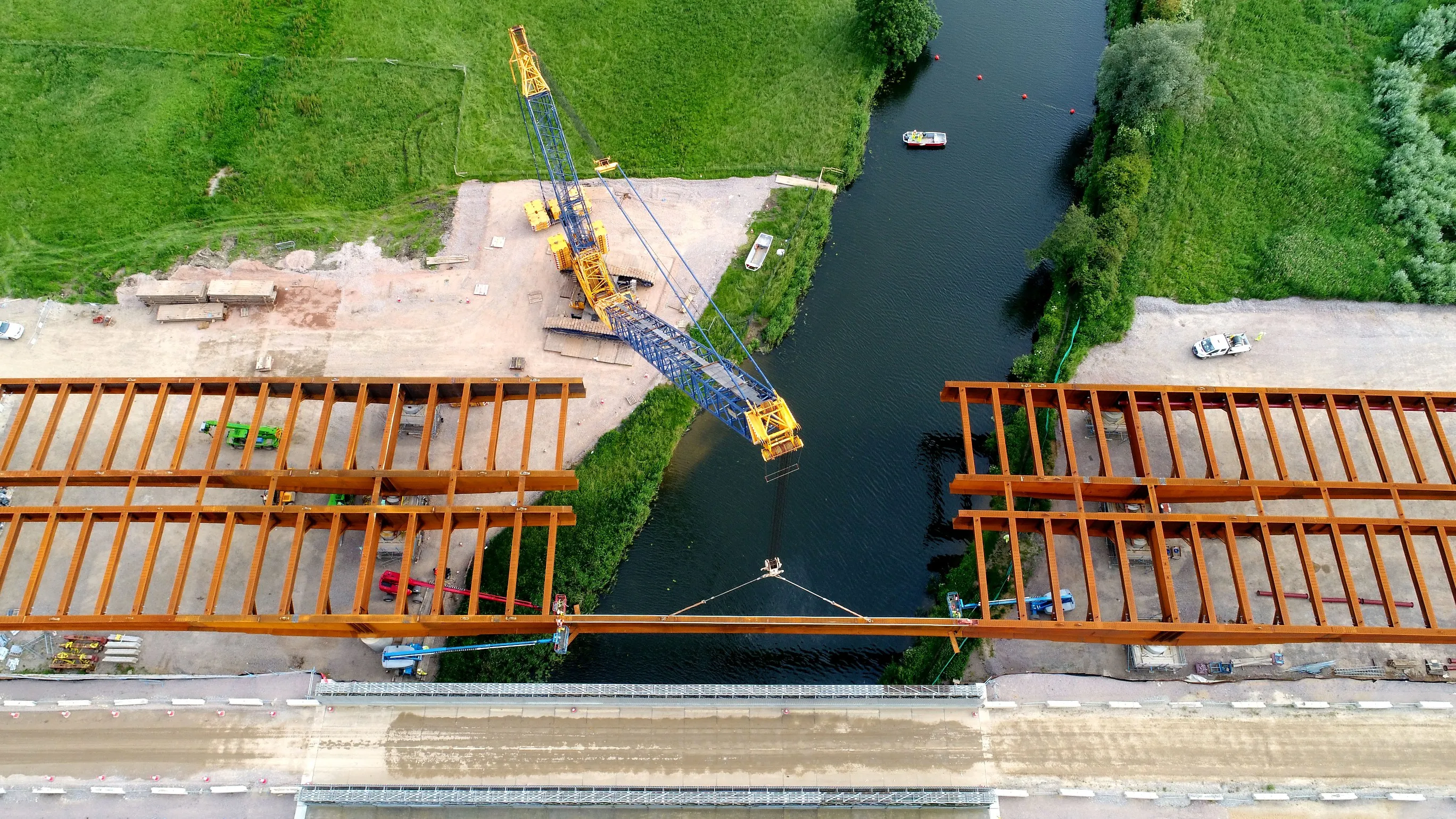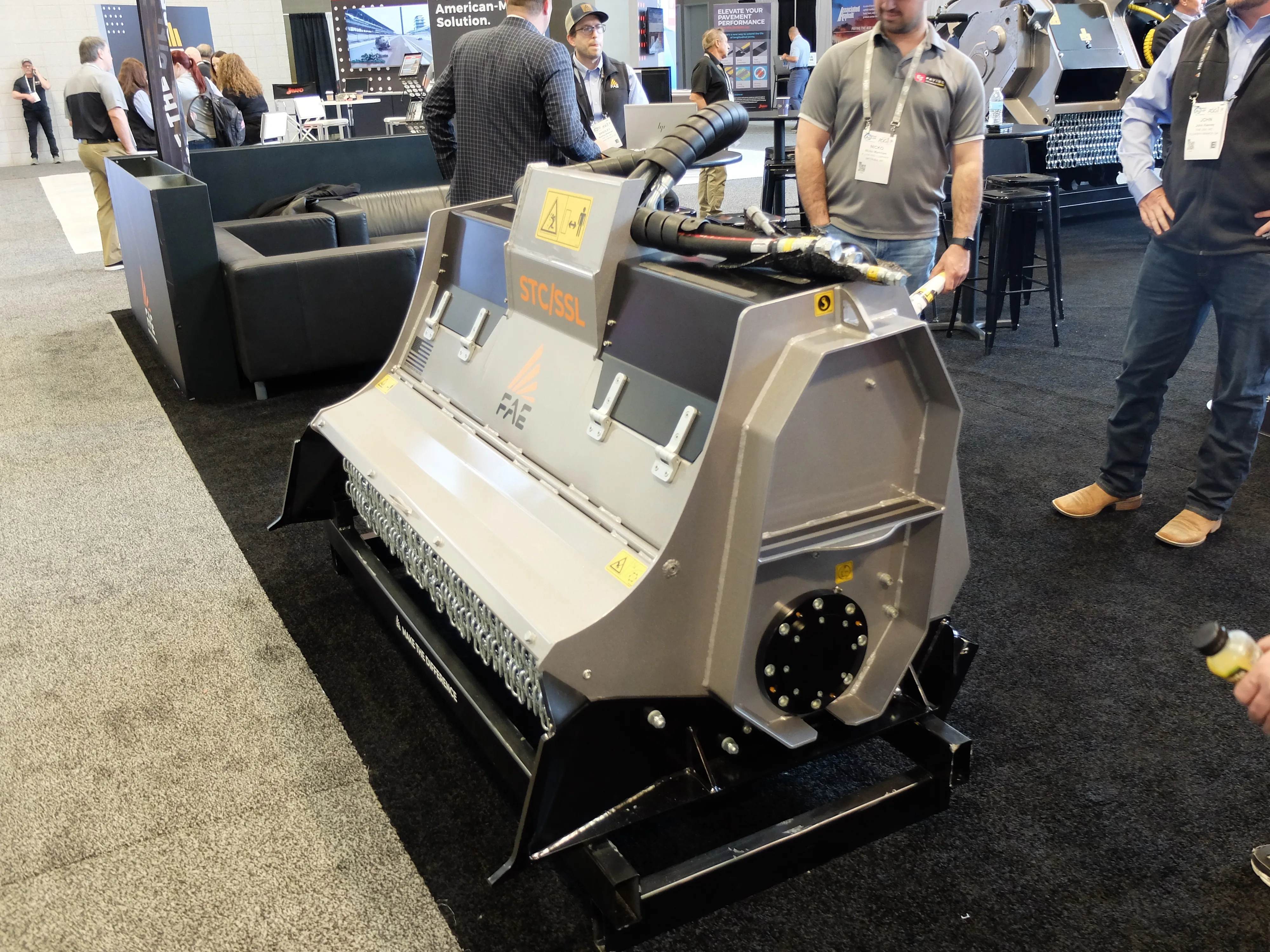Greek construction company Intrakat likes a challenge. It recently took on two closely scheduled airport projects – but it had only a single asphalt plant.
Intrakat used the transport-optimised Ammann ABT QuickBatch Asphalt-Mixing Plant to produce mix at the airport on the island of Mykonos airport. Afterwards, the plant was packed and ferried to Kos.
The upgraded runways at Mykonos and Kos are two of the 14 Greek airports being rehabilitated within seven months. Intrakat is handling mix production at
December 13, 2018
Read time: 3 mins
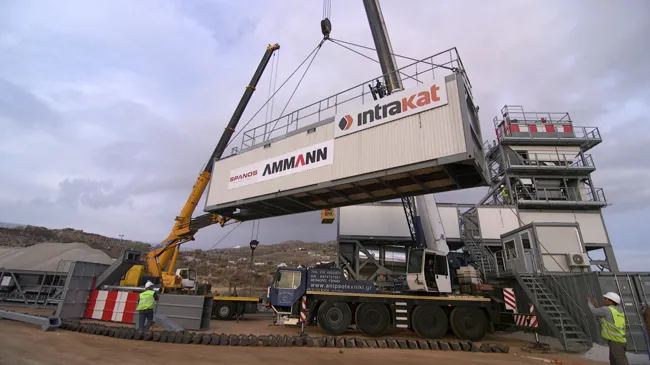
Greek construction company Intrakat likes a challenge. It recently took on two closely scheduled airport projects – but it had only a single asphalt plant.
Intrakat used the transport-optimised6791 Ammann ABT QuickBatch Asphalt-Mixing Plant to produce mix at the airport on the island of Mykonos airport. Afterwards, the plant was packed and ferried to Kos.
The upgraded runways at Mykonos and Kos are two of the 14 Greek airports being rehabilitated within seven months. Intrakat is handling mix production at all 14 airports, said Christos Papakatsikas, Airside Director at Intrakat.
The work at Mykonos and Kos involved full replacement of the asphalt at both airports. “The volume of the works involved about 40,000tonnes of asphalt mixtures in Mykonos and 45,000tonnes in Kos,” said Panagiotis Anagnostopoulos, project manager at Intrakat.
The ABT QuickBatch is built around the container principle. Key core components, including dryer/filter units and mixing tower modules, reside in housings that also serve as certified transport containers. The components are built as 20-foot or 40-foot units, the most common container sizes. The entire plant is contained in 10 units.
The challenge of moving the plant from Mykonos to Kos involved a window of only two weeks, including a 250km ferry trip. “During this time the asphalt plant had to be disassembled, shipped and reassembled, including commissioning,” said Rolf Klitscher, project director for Fraport Greece, the concessionaire that is responsible for the maintenance, operation, management, upgrade and development of the 14 regional airports in Greece over the next 40 years. “When we take on a rehabilitation we have a very short time, only 20 days, to close the runway.”
Anagnostopoulos estimated installation would be completed in 10-12 days and disassembly in 8-10 days. “For the installation and disassembly, we used two cranes as well as a small hydraulic telescopic crane, which was not actually necessary,” he said.
The job required the use of recycled asphalt (RAP) milled at the airport. The ABT QuickBatch is a capable recycler, and Intrakat took another time-saving step by employing the Ammann RSS 120-M – a shredder, with primary granulator, secondary granulator and screen, all built into a single machine.
The RSS 120-M uses technology specifically designed for RAP, milled or slabs, that enables gentle crushing at low RPM. This minimises the fines in the RAP, making handling and incorporation of the recycled material into the hot mix as efficient as possible.
The RSS 120-M is a mobile machine that’s ready to use within 30 minutes of arriving on the jobsite. Therefore, the machine fully met Intrakat’s needs in terms of mobility, setup time, on-site production and reduced fines.
The asphalt has to be processed before being used in production and the Ammann RSS 120-M mobile proved effective.
The plant’s production capacity during the works in Mykonos and Kos reached 150 tonnes an hour. “It was not expected of course to reach nominal production capacity due to the delay from the addition of polymers to the mixture, which required additional mixing time,” Anagnostopoulos said. “But it was fully satisfactory and definitely exceeded expectations.”
Intrakat used the transport-optimised
The upgraded runways at Mykonos and Kos are two of the 14 Greek airports being rehabilitated within seven months. Intrakat is handling mix production at all 14 airports, said Christos Papakatsikas, Airside Director at Intrakat.
The work at Mykonos and Kos involved full replacement of the asphalt at both airports. “The volume of the works involved about 40,000tonnes of asphalt mixtures in Mykonos and 45,000tonnes in Kos,” said Panagiotis Anagnostopoulos, project manager at Intrakat.
The ABT QuickBatch is built around the container principle. Key core components, including dryer/filter units and mixing tower modules, reside in housings that also serve as certified transport containers. The components are built as 20-foot or 40-foot units, the most common container sizes. The entire plant is contained in 10 units.
The challenge of moving the plant from Mykonos to Kos involved a window of only two weeks, including a 250km ferry trip. “During this time the asphalt plant had to be disassembled, shipped and reassembled, including commissioning,” said Rolf Klitscher, project director for Fraport Greece, the concessionaire that is responsible for the maintenance, operation, management, upgrade and development of the 14 regional airports in Greece over the next 40 years. “When we take on a rehabilitation we have a very short time, only 20 days, to close the runway.”
Anagnostopoulos estimated installation would be completed in 10-12 days and disassembly in 8-10 days. “For the installation and disassembly, we used two cranes as well as a small hydraulic telescopic crane, which was not actually necessary,” he said.
The job required the use of recycled asphalt (RAP) milled at the airport. The ABT QuickBatch is a capable recycler, and Intrakat took another time-saving step by employing the Ammann RSS 120-M – a shredder, with primary granulator, secondary granulator and screen, all built into a single machine.
The RSS 120-M uses technology specifically designed for RAP, milled or slabs, that enables gentle crushing at low RPM. This minimises the fines in the RAP, making handling and incorporation of the recycled material into the hot mix as efficient as possible.
The RSS 120-M is a mobile machine that’s ready to use within 30 minutes of arriving on the jobsite. Therefore, the machine fully met Intrakat’s needs in terms of mobility, setup time, on-site production and reduced fines.
The asphalt has to be processed before being used in production and the Ammann RSS 120-M mobile proved effective.
The plant’s production capacity during the works in Mykonos and Kos reached 150 tonnes an hour. “It was not expected of course to reach nominal production capacity due to the delay from the addition of polymers to the mixture, which required additional mixing time,” Anagnostopoulos said. “But it was fully satisfactory and definitely exceeded expectations.”


